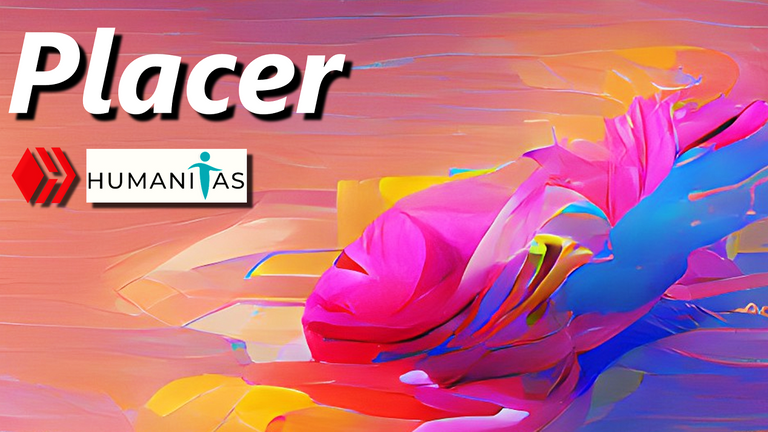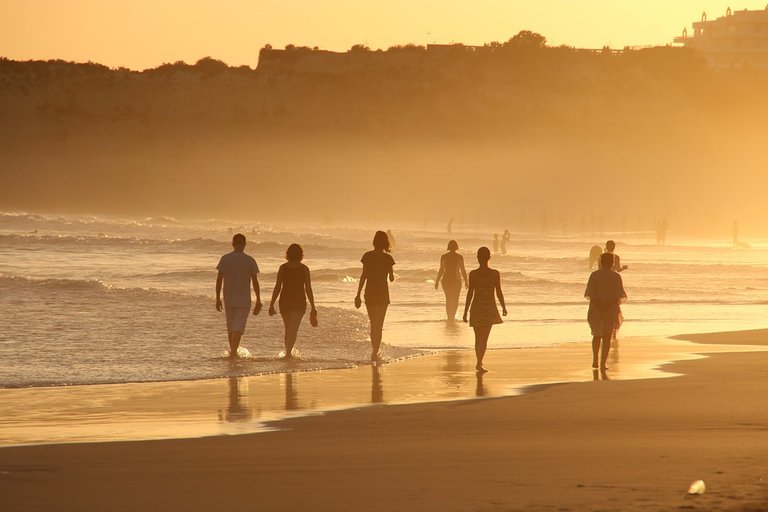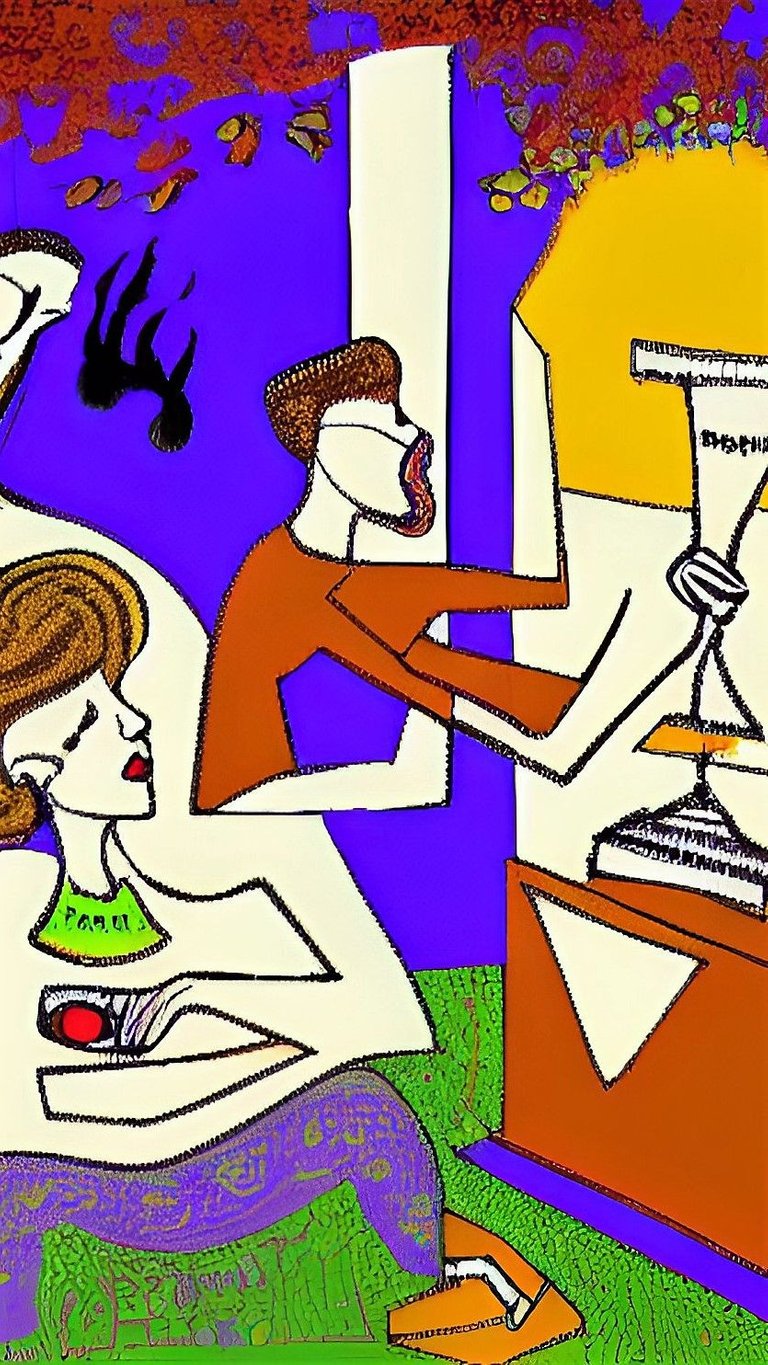Se puede reflexionar en torno a casi cualquier tema de lo humano, así sea lo más cotidiano. Esto lo hemos visto en diversas participaciones en la comunidad #Humanitas. Esta vez se trata de un tema tan cotidiano como profundo: El Placer.
Este es el enlace de la iniciativa: Iniciativa: Cultura Humana semana N°18: El Placer y el Ser Humano. En la comunidad Humanitas.

El Placer. Podríamos preguntarnos de donde viene o porqué lo sentimos. Como ingeniero, siempre he tenido cierto interés en la ciencia, así que por allí podríamos partir en esta reflexión. Lo primero que podríamos pensar es en lo biológico. De alguna manera, debería haber un incentivo o estímulo a que hagamos cosas que nos mantengan vivos. Evolutivamente, el placer podría verse como un mecanismo de recompensa de nuestro cuerpo para mantener nuestra integridad física. Buscamos comer, beber agua, dormir, cosas que mantienen nuestro cuerpo saludable.
Esto es un mecanismo muy efectivo en los animales, los cuales tienen millones de años de evolución. El ser humano, en cambio, parece tener algunas cosas diferentes. Quizás tiene que ver con nuestra mayor auto-consciencia o voluntad propia, lo cual nos separa de los animales. Pero en el fondo, compartimos con los animales muchas cosas relacionadas al placer. El gusto por la comida que tenga buen sabor quizás se relaciona con el instinto de buscar cosas que tengan minerales, vitaminas, sodio, azúcar, etc., y lo hemos logrado de alguna manera reproducir "artificialmente" mediante cosas como los dulces o condimentos.
Creo que de allí puede surgir la reflexión: ¿Está mal sentir placer por comer algo con buen sabor aunque no sea saludable? Creo que de alguna manera, en algunas cosas, hay una delgada línea entre el placer natural y el vicio o volverse esclavo del placer. Como se menciona en la iniciativa, la vida no tendría sentido si no existieran los placeres, pero tampoco podemos o deberíamos ser esclavos de ellos.
De esta manera, pienso que si existen los dulces es porque están destinados a ser disfrutados por alguien. Es placer que no se lo podemos negar a nadie. Pienso que lo que verdaderamente está mal es la consciencia o intención con la que buscamos ese placer. Si al final del día quieres comerte un chocolate a manera de recompensa por haber trabajado duro, quizás esa satisfacción sea tal que la "relajación y positividad" generada en el cuerpo y la mente sea mayor que el daño que pueda ocasionar el chocolate en sí.
Por otro lado, el otro extremo sería volverse esclavo del placer generado por el chocolate. El placer en sí podría o debería ser visto como un medio y no un fin ¿Para qué te comes el chocolate?

Otra de las preguntas planteadas en la iniciativa era la del vínculo entre el placer y la felicidad. El primer término quizás se relaciona a algo más inmediato, mientras que la felicidad quizás es algo más "etéreo" (similar a las Necesidades VS Deseos). Creo que se puede ser feliz sin placer, aunque también creo que no sería lo ideal. La felicidad es algo más interior, sin depender de las circunstancias externas.
Volviendo a lo biológico, hay algo curioso en el ser humano y los mamíferos relacionados como los primates. Sentimos también placer al realizar actos altruistas. Decidimos ayudar a otros aunque esto pueda ponernos en desventaja. En la naturaleza esto sería peligroso para un individuo, pero con los primates ocurre que ayudar a otro puede ser ventajoso para la supervivencia del grupo, de la comunidad. Quizás de allí surgió la moralidad en el ser humano y su comportamiento en grupo, la consciencia de que existe "otro" como yo. Puedes ver más de esto en este video de "Date un Vlog":
También se me ocurre pensar en que a medida que envejecemos más altruistas pareciera que somos, más placer da ayudar a otros, cosa que podríamos ver en nuestros abuelos. Quizás lo que deberíamos pensar es en cómo aprender más a través del placer que a través del dolor. Es normal que el camino hacia un crecimiento personal, espiritual y emocional esté lleno de incomodidades o dolor, pero ¿Debe ser así siempre y para todos? Un ejemplo que he mencionado muchas veces: la educación de los países nórdicos, mucho más flexible y efectiva, versus la educación en países occidentales, más rígida y con resultados no siempre positivos desde el punto de vista académico y psicológico.
El ser humano no puede evitar el dolor o evitar sentirse atraído por el placer en la mayoría de los casos. Es cuestión de ser justos en el placer que recibimos para que tenga un fin productivo o que sea útil para nosotros y los demás.
Espero que hayas disfrutado de esta lectura. Invito a participar a @helengutier2 @erilej @mosa71 @lisrl26

It is possible to reflect on almost any human topic, even the most mundane. We have seen this in several participations in the #Humanitas community. This time it is about a topic as everyday as it is profound: Pleasure.
This is the link to the initiative: Initiative: Humanitas Culture week N°18: Pleasure and the Human Being. In the Humanitas community.

Pleasure. We could ask ourselves where it comes from or why we feel it. As an engineer, I have always had a certain interest in science, so that is where we could start in this reflection. The first thing we could think about is the biological. Somehow, there should be an incentive or stimulus for us to do things that keep us alive. Evolutionarily, pleasure could be seen as a reward mechanism of our body to maintain our physical integrity. We seek to eat, drink water, sleep, things that keep our body healthy.
This is a very effective mechanism in animals, which have millions of years of evolution. Humans, on the other hand, seem to have a few things different. Maybe it has to do with our greater self-awareness or self-will, which separates us from animals. But deep down, we share with animals many things related to pleasure. The taste for food that tastes good is perhaps related to the instinct to look for things that have minerals, vitamins, sodium, sugar, etc., and we have somehow managed to reproduce this "artificially" through things like sweets or condiments.
I think the reflection may arise from there: Is it wrong to feel pleasure from eating something that tastes good even if it is not healthy? I think that somehow, in some things, there is a fine line between natural pleasure and vice or becoming a slave to pleasure. As mentioned in the initiative, life would be meaningless if pleasures did not exist, but neither can we or should we be slaves to them.
Thus, I think that if sweets exist, it is because they are meant to be enjoyed by someone. It is pleasure that we cannot deny to anyone. I think that what is really wrong is the consciousness or intention with which we seek that pleasure. If at the end of the day you want to eat a chocolate as a reward for having worked hard, perhaps that satisfaction is such that the "relaxation and positivity" generated in the body and mind is greater than the harm that the chocolate itself can cause.
On the other hand, the other extreme would be to become a slave to the pleasure generated by the chocolate. The pleasure itself could or should be seen as a means and not an end. Why do you eat the chocolate?

Another question raised in the initiative was the link between pleasure and happiness. The former term perhaps relates to something more immediate, while happiness is perhaps something more "ethereal" (similar to Needs VS Wants). I believe that one can be happy without pleasure, although I also believe that it would not be ideal. Happiness is something more internal, without depending on external circumstances.
Returning to the biological, there is something curious in humans and related mammals such as primates. We also feel pleasure when performing altruistic acts. We decide to help others even though this may put us at a disadvantage. In nature this would be dangerous for an individual, but with primates it happens that helping another can be advantageous for the survival of the group, of the community. Perhaps this is the origin of morality in humans and their group behavior, the awareness that there is "another" like me. You can see more of this in this video of "Give yourself a Vlog":
It also occurs to me to think that the older we get the more altruistic we seem to be, the more pleasure it gives to help others, something we could see in our grandparents. Perhaps what we should think about is how to learn more through pleasure than through pain. It is normal that the path to personal, spiritual and emotional growth is full of discomfort or pain, but should it always be so for everyone? An example that I have mentioned many times: education in Nordic countries, much more flexible and effective, versus education in Western countries, more rigid and with not always positive results from the academic and psychological point of view.
Human beings cannot avoid pain or avoid being attracted to pleasure in most cases. It is a matter of being fair in the pleasure we receive so that it has a productive purpose or is useful for us and others.
I hope you enjoyed this reading. Leave your comment or opinion.
Translated to English language with the help of DeepL.com
Otras redes sociales:
 |
 |
 |
 |
F1 & motorsports: @acontmotor
 |
 |
 |
 |
| ¡Gracias por visitar! — ¡Thanks for visiting!  |

The rewards earned on this comment will go directly to the people( @acont ) sharing the post on Twitter as long as they are registered with @poshtoken. Sign up at https://hiveposh.com.
Muchas gracias por la mención e invitación , estoy atenta para participar.
Interesante iniciativa y punto de vista, concuerdo en mucho de lo descrito. El ejemplo del chocolate quedó genial, estoy en ese punto de mi vida donde el placer y la culpa se hacen presente a menudo.
Gracias por la invitación, con gusto participaré.
Interesante punto de vista @acont , en que puedo apreciar que compartimos el gusto por el chocolate, el buen comer y que sobre las creencias personales y las religiones debe prevalecer la vida espiritual en que siempre encontraremos más coincidencias que puntos de desencuentro.
Resalto la parte donde defines al placer más como un medio que un fin en sí mismo, aún cuando en algunas o muchas ocasiones ambos confluyan el placer es algo que si está nos facilita mucho las cosas pero sino no quiere decir que no hagamos nada, no me gustan los remedios pero cuando estoy enfermo y toca... Bueno, toca.
!PIZZA
PIZZA Holders sent $PIZZA tips in this post's comments:
@jesusalejos(1/10) tipped @acont (x1)
Learn more at https://hive.pizza.